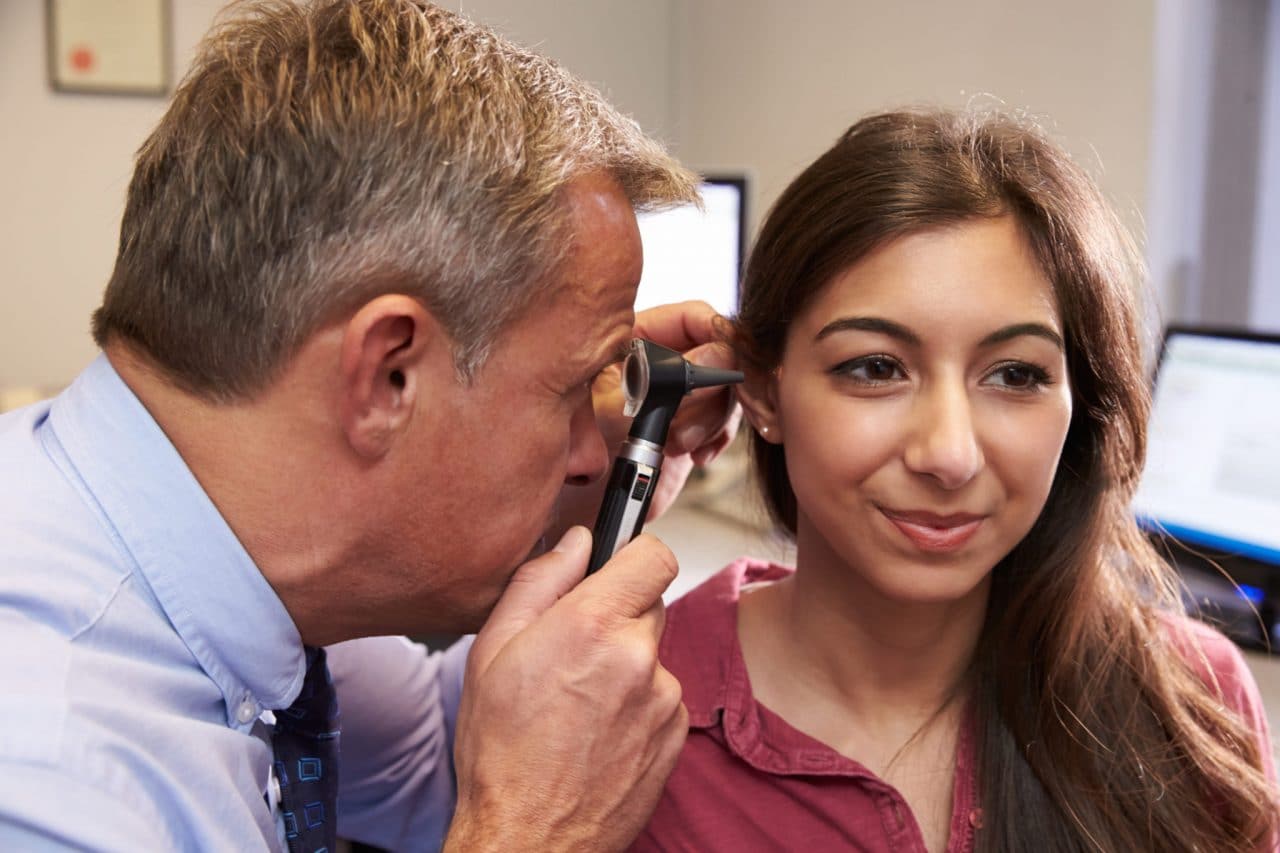Eardrum Perforation
An eardrum perforation is defined as a hole or rupture in the eardrum. This tear occurs in the membrane separating your outer ear from your middle ear. A perforation can lead to a middle ear infection and possible hearing loss, though in many cases it will heal on its own without medical treatment.

What Can Cause Eardrum Perforations?
Eardrum perforations are most often caused by infection, direct injury or Eustachian tube disorders. Middle ear infections cause a buildup of pressure that may result in a ruptured eardrum. Noise trauma to the ear or a blow to the head, such a skull fracture or a sudden explosion, can cause a perforation. Inserting objects like bobby pins or Q-tips in the ear to clean wax can inadvertently cause a rupture as well. Chronic Eustachian tube problems can weaken the eardrum, making it more prone to perforation.
What Are the Symptoms of Eardrum Perforation?
Some people are completely unaware of a ruptured eardrum; there may be a complete lack of symptoms or only a feeling of general discomfort. Other times, people will experience either a sudden sharp pain in the ear; a discharge of fluid that may be bloody, clear or pus-like; a buzzing or ringing in the ear; partial or complete hearing loss in the affected ear; ear infection; facial weakness or dizziness.
How Are Eardrum Perforations Treated?
Our physicians will examine your ears with an otoscope and/or a magnifying microscope to identify a hole or tear in the eardrum. Occasionally, a hearing test is also recommended. Because the majority of perforated eardrums heal on their own in a few months, no treatment may be needed. Over-the-counter pain medication and a warm compress can help. Large or unhealed perforations may require surgery to repair the eardrum and restore hearing. While the rupture is healing, you’ll need to keep the ear dry, avoiding water as much as possible.
If you’ve encountered a similar condition or if you’ve experienced a failed repair of an ear drum perforation before, our physicians may be able to use newer techniques to help you. Call DeFatta ENT & Allergy at (715) 828-2368 for more information or to schedule an appointment.